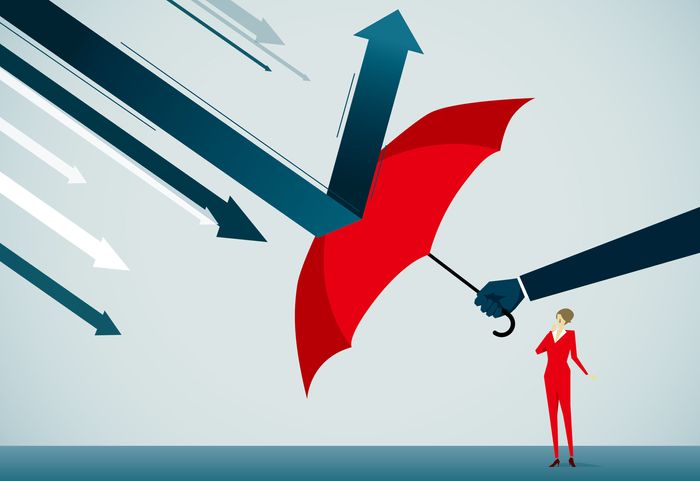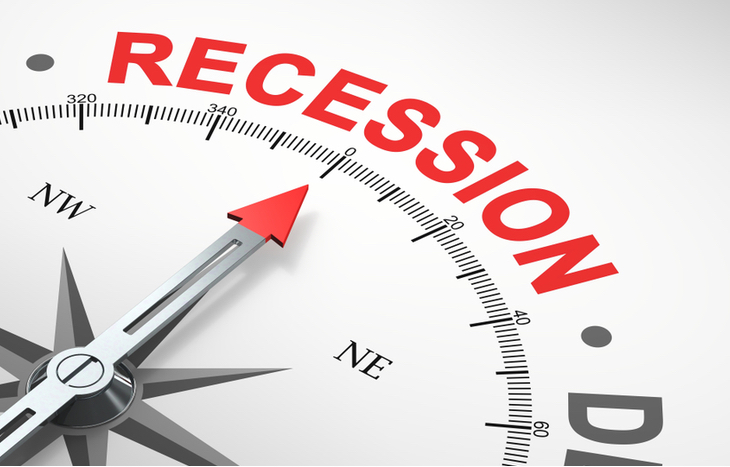How to Be Ready for Coming Recession In 2023
Oct 26, 2023 By Triston Martin
Investors and analysts fear a 2023 U.S. recession due to geopolitical conflicts, oil market imbalance, high inflation, and increasing interest rates. The Federal Reserve has been increasing interest rates throughout 2022 in an effort to combat inflation. This has increased the likelihood of a recession. If you're an investor, you'll be happy to hear that the U.S. economy has been holding up well so far. The Fed's chances of guiding the economy to a "soft landing" in 2023 diminish the further interest rates rise. Recessions have been commonplace over the past century, so there's no need to freak out about them. If a recession is expected in 2023, investors can make the most of a bad situation by keeping an eye on the right risk factors and positioning their portfolios accordingly. So, let's find out how to prepare for a recession.
Risks of a Recession In 2023

There are a number of factors that can cause or contribute to a recession, but in 2023, two, in particular, pose the greatest threat to economic stability. There is little doubt in the minds of investors who haven't been hiding under a rock for the past year that inflation is the biggest economic threat for 2023 and beyond. Consumer prices in June 2022 rose by 9.1 percent from a year earlier, the highest annual rate of inflation in over four decades. Although the Federal Reserve has adopted a tough stance to battle inflation, raising interest rates—which are also the second biggest economic risk factor for 2023—is the best option. When interest rates are high, borrowing money becomes more expensive, which makes it less attractive for businesses to take on debt for growth purposes. Increases in interest rates have the additional effect of discouraging spending by consumers, thereby reducing the demand pressures that have contributed to price increases.
The Federal Reserve began its campaign of rapid interest rate increases in March 2022 in an effort to curb inflation. The Federal Reserve has moved the target range for its fed funds rate from near zero to its current range of 3.85% to 4%. Thankfully, inflation has decreased from its June high of 9.1% to the most recent measurement in October's CPI of 7.7%. Interest rates are expected to rise more in the coming months since inflation at 7.7% is still much higher than the Fed's long-term objective of 2%. Uncertainty in the global energy market, especially in Europe, has been exacerbated by the continuing war between Russia and Ukraine. This winter, it's likely that countries in the bloc won't be able to get natural gas from Russia, and a sudden rise in oil and gas prices in the next few months could ruin an already weak U.S. economy.
Will A Recession Occur In 2023?
The U.S. economy has not yet been negatively affected by inflation and increasing interest rates. The U.S. economy created 261,000 jobs in October, and the unemployment ratio in the country is still at a 50-year low of 3.7%. As interest rates climb, investors must keep an eye on the job market. As per the CME FedWatch program, the bond market is valuing a 61.5% possibility that the Fed would increase interest rates by 1.35 percentage points by July 2023, raising its objective rate from 5% to 5.35%. According to Michael Gapen, Bank of America's top U.S. economist, a further 0.5 percentage point increase in interest rates in December and a 0.35 percentage point increase in interest rates in February would certainly push the U.S. economy into a recession. Gapen predicts a "moderate recession" between the first and third quarters of 2023. We expect the Fed will raise rates to 5.25% from 5%, given past experience. We don't expect a gentle landing. So, how to prepare for recession?
Fortunately, Gapen believes that by December 2023, the economy will have improved enough for the Fed to once again begin lowering interest rates. However, Goldman Sachs' senior economist Jan Hatzius is confident that the United States will be able to avoid a recession in 2023, despite the challenges that lie ahead. With an increase in the unemployment rate of 0.5 percentage points, "the U.S. could barely escape recession as basic (personal consumption spending) inflation falls from 5% presently to 3% in late 2023," says economist Jan Hatzius.
The Fed's monetary tightening is undoubtedly a drag on economic development, but Goldman predicts that real disposable income in the United States will increase by at least 3 percent over the next year. Even though "there are dangers on both sides," Hatzius explains, "we believe that the real income upswing is inclined to be the larger factor as we progress through 2023," mainly because "the economic situation drag will likely reduce" if the Federal Reserve does not "deliver significantly more stiffening than the rates (the) market is now pricing.
Recession Investments

During a recession, investors may reduce their exposure to risk and reap the benefits of any openings that present themselves by using a few different tactics. First, you may want to think about decreasing your dependence on fluctuating stock prices and raising your cash reserves. Having cash on hand limits your exposure to market volatility and gives you options in the event of a recession in 2023 that might lead to advantageous purchasing opportunities. Moreover, savers may now earn 3 percent or more in an electronic savings account, and those rates will grow further if the Fed releases additional rate rises.
And when interest rates are high, value equities tend to do better than growth ones. The discounted cash flow values of corporations suffer as interest rates rise, which may be bad news for high-growth equities. For the last year, Vanguard Value ETF has returned 2.8 percent, while VUG has dropped 28.4 percent as of November 25. The last point is that during economic downturns, particular equities and market sectors do better than average because they are more defensive. When it comes to investing, defensive bets include utilities, healthcare, and consumer essentials since their profits are less susceptible to economic fluctuations and fluctuations in consumer confidence. All these investment tips are answers to how to prepare for a recession in 2022.

Triston Martin Feb 04, 2024
Can You Still Retire If You Don't Have Any Money Saved
40140

Susan Kelly Feb 25, 2024
What Does Real Estate Agent Do
33040

Susan Kelly Dec 21, 2023
Top 4 Strategies to Short the S and P 500 Index (SPY)
27098

Susan Kelly Oct 11, 2023
Cracking the Code: Dealing with the Six Most Frequent Tax Issues in the Gig Economy
93024

Triston Martin Feb 03, 2024
Options for Those Struggling to Pay Their Taxes
97951

Triston Martin Feb 04, 2024
What An Early 401(K) Withdrawal Really Costs When Cashing Out A 401(K)
7867

Susan Kelly Dec 04, 2023
Navigating the Basics of Phillips Curve: A Detailed Guide
53244

Triston Martin Nov 17, 2023
How a Cash-Out Refinance Works and Uses of It?
98062